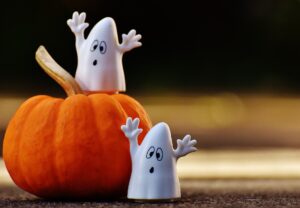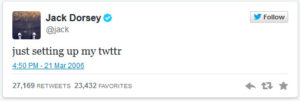
By Elaine Viets
Before this day is over, more than fourteen new English words will be created. The Global Language Monitor says “around 5,400 new words are created every year.” Only about a thousand are “deemed to be in sufficiently widespread use to make it into print.”
Here are a few of them. Are they trending or trendy? Which do you have think have staying power?
Bands
According to the Urban Dictionary, this latest use of “bands” was created by rapper Ray Vicks. He “coined the term in his mixtape 36 O’s Later (track 4) when he said, ‘I got 10 bands on me.’” A band is a thousand dollars, so ten bands is ten thousand bucks.
Other sources claim “bands” are a big stack of money, often wrapped in rubber bands. Either way, the word is used in rap and hip-hop.

Buycott
A “buycott” is when you buy a company’s products because you support their policies. Hello, Ben and Jerry’s, with its campaigns to support gay marriage, the Great Barrier Reef, and much more. Activism has never been sweeter. Don’t agree with their policies? Boycott ’em!

Cool
“Cool” is once more cool again. It’s safe to use.
Doomscrolling/Doomsurfing
Webster has given its stamp of approval to both these words. Here’s how they’re defined. “Doomscrolling and doomsurfing are new terms referring to the tendency to continue to surf or scroll through bad news, even though that news is saddening, disheartening, or depressing. Many people are finding themselves reading continuously bad news about COVID-19 without the ability to stop or step back.”
Yep, I’ve spent many a morning “doomscrolling.” Even cat videos couldn’t pull me out of my funk.
Fit
“Fit” has a number of alternative meanings. In teenage slang, it’s short for outfit, as in “She looks so hot in that black leather ‘fit.’”

Flex
Flex means to show off, to brag. If someone shows up way overdressed, dripping diamonds, you might wonder why they’re “flexing on you.” The Urban Dictionary says it’s “used by many rappers, most notable Ice Cube and the Geto Boys. “…no flexin’, didn’t even look in the nearest direction as I ran the intersection. (This is said because Ice is trying to get away from some people who tried to kill him the other day. In the song, of course)”– Ice Cube, “It Was a Good Day.”
Ghost
Shades of Casper, but not as friendly. Now, when it’s used as a verb, it means to stop talking to someone, to ignore them. “I thought my first date with Ron went well, but after he brought me home, Ron totally ghosted me.”

NFT
“NFT” is an abbreviation for “non-fungible token,” and the idea is puzzling, at least to me. NFTs have been around since 2017, and the term is in Webster’s. One website says an NFT is “a unique digital certificate, registered in a blockchain, that is used to record ownership of an asset such as an artwork or a collectible.” Even the explanation is confusing.
People pay big bucks for NFTs. When Christie’s auction house sold an NFT by the digital artist Beeple for $69 million, it set a new record for digital art. Twitter’s founder Jack Dorsey sold an NFT of the first tweet, which said, “just setting up my twttr.” This historic tweet was published on March 21, 2006 and has been shared more than 120,000 times. Still, it sold for $2.9 million bucks. I’ll give you a free peek here:

If you spend three million for a painting, you expect to have something unique. You can hang it on your wall and never show it, except to your friends.
But NFTs can – and are – duplicated. Everyone’s seen them. Genuine NFTs come with “a digital certificate of ownership that can be bought and sold.” Evidently, that’s enough for NFT lovers.
Savage
“Savage,” when used as a noun means “insanely hardcore. Incredibly cool.” Usually describes someone’s skill or talent, as in:
Lindsey Jacobellis is a savage at snowboarding. No wonder she snagged the gold at the Olympics.
Here’s my favorite example from a website: “Jill is a savage at drawing.”
I can see Jill at her easel, wielding a mean palette knife.
Sheeple
A combination of sheep and people, meaning “those who blindly follow the herd.” Used as an insult.

Sketch
Slang for “sketchy,” which means “questionable or iffy.” If you and your friends accidentally make a wrong turn into a dark, rat-infested alley, you might say, “Let’s get out of here. This place is sketch.”

Sus
Slang for “suspicious.” If I get an email from a Nigerian prince promising me a million bucks, I would instantly know that was “sus.” The last one offered me two million.
Whip
An expensive, flashy car:
“Wow, that’s some whip you got there, Josh. That Ferrari must have cost you a stack of bands.”

WYA
WTF? Another texting acronym is invading the language. “WYA” is short for “Where you at?”
It can have a double meaning. For instance, if a young woman is looking to hook up with her boyfriend, she might text him “WYA.” Just between friends, WYA really does mean, “Where are you at?” And if your parents text you that, report in instantly.
**************************************************************************************************
 Fans of J.A. Jance and Lisa Gardner will love this exploration of the little-known job of death investigator in small-town Missouri where Angela Richman finds herself investigating the lives and secrets of the one percenters in Chouteau Forest.
Fans of J.A. Jance and Lisa Gardner will love this exploration of the little-known job of death investigator in small-town Missouri where Angela Richman finds herself investigating the lives and secrets of the one percenters in Chouteau Forest.
Life without Parole, my new Angela Richman, death investigator mystery, is now on sale in hardcover. Buy it here: https://www.amazon.com/Without-Parole-Richman-Investigator-mystery/dp/0727850288/ref=tmm_hrd_swatch_0?_encoding=UTF8&qid=1644453158&sr=8-2

Sheeple has been in use for several years.
I did not know about “buycott” and “doomsurfing.” I like both.
“Shade/shading” is a concept on a spectrum with “ghost/ghosting.”
FYI: Anyone can add a word to the Urban Dictionary. To submit, you need to offer a definition and source. My two submissions are there, “Scallywag” and “Going Postdoctoral.”
Interesting. But I’ve been hearing “scallywag” since I was a young child almost 70 years ago. It’s actually a mispronounciation of scalawag (spelled with either one or two Ls).
My mother also used “scalawag” a lot, probably quoting her Irish father, who often applied it to her and her sibs: “You lazy scalawags will never own a brick privy!” Pat was right; they never did.
My grandmother used scalawag also, mostly when she was referring to my little brothers. She said the word with amusment.
Harvey, it’s likely the word “scallywag” is a corruption of scalawag (which has been around since at least before the Civil War), but the meaning is quite different. Unlike scalawag, it is not a pejorative term. In the Boston area, a scallywag is a non-union worker allowed to work on longshore on a day-by-day basis when the cargo loading/unloading required more men.
My father was a longshoreman on the Boston waterfront for 50 years, which is how I knew the local usage.
Didn’t know that, TL. Thanks.
“Going Postdoctoral” is hilarious, TL!
Words get dropped from the Urban Dictionary all the time. Most of the “definitions” are clearly bogus. I’d put it a couple of notches below Wankerpedia because of that.
J,
I agree, the Urban Dictionary is not a legitimate compendium of definitions.
Neither is the second source you mentioned, which is filled with non-juried errors.
I have a phobia against quoting either one of these databases as a source. My reason for submitting entries was for fun. Also, my first book is about longshoremen and I wanted to use the word scallywag, but didn’t know how to spell it, which led me on a winding path to the Boston Magazine article that included the local usage definition.
That “second source” has stricken all mention of the failure of communism in the early colonies. It’s so unreliable, it’s mentioned in a conversation between Bart Simpson and Homer.
I strongly suspect the etymologies of scalawag and scallywag are the same, but their definitions differ due to a change in labor relations.
“Going Postdoctoral.” Good one, Truant!
I like “going postdoctoral.” Webster says “scalawag” has been around since 1843, but it needs to be used more often.
My grandmother used to call my mischievous little brothers “scalawags, but it was said with love.
Thanks for the fun new words, Elaine.
When did “cool” ever go out of fashion? I must have missed that memo.
The supposed value of NFTs is mystifying. I wonder if the real meaning “Not a F***ing Thing.”
Haha! I missed the memo, too, Debbie.
Sometime in the late ’80s and early ’90s cool was no longer cool.
The more I try to understand NFTs, the less sense they make, Debbie.
I don’t know, Elaine. Interesting list. Are we descending into illiteracy?
I don’t intend to use any abbreviations (ex. WYA) in my emails which will require the recipient to look it up. And I it’s sad that we are adding abbreviations that aren’t even grammatically correct. I better stop before I say more.
Interesting list, but I’m still learning to use English correctly.
Have a great day.
Not sure these words are a sign of illiteracy, but WYA is definitely incorrect.
I never stopped using “Cool.” 😉
I think “ghosted” will stick around, and I’m fine with that. It’s clear and to the point. Acronyms drive me crazy. I’m still foggy on YOLO and MILF, never mind NFT. Although, I also text with punctuation and proper capitalization, so what do I know?
Thanks for a fun post, Elaine!
Sue, ya sent me to Google to look up YOLO and MILF!
“The Kid” just informed me what they mean. I figured MILF was a cougar (sort of), but I had no idea what the letters stood for. Apparently, there’s also a DILF. *wags head*
Ick to DILF and MILF
YOLO – You Only Live Once. It is largely gone. Used by 20 somethings about doing something dangerous. It’s older cousin “Here. Hold my beer.” Beat the crap out of it.
MILF is from the movie AMERICAN PIE (1999). Mom I’d Like to F***. Almost old enough to be a MILF. Expect it to be around forever. Although “Hot Mommie” is more socially acceptable.
I’m with you, Sue. I think ghosted will last.
‘Swifty’ post. 🙂
There should be an award for this stuff like the Emmys. I’m proposing “The Trendies”. We’ll award it to slanguage and wordoids that quickly disappear from popular usage.
The drawback for writers is this: In working too hard at being relevant as we think to the young folks and to thickheaded people who get their reality from social media they create something that gets stale fast for people who read only tripe.
The exception would be in framing a character to a particular small slot of time.
Say. I’ve been framed.
In fact tripe’s another good one from the past. My dear sainted mother used it plenty.
Groovy, anyone? I’m hangin loose today in my pad with a little Monk on the box.
I looked up many of Conan Doyle’s words the first time I read Sherlock Holmes. What is hip now will be ancient one day.
Oh, yeah, man. Like I dig it. I really dig it.
“Sus” is unfortunately close to “suss,” which means to detect, a common word in British thrillers. There’s a level of cleverness associated with sussing. It’s almost always used with “out,” as in “I sussed out what had happened before the SOCOs arrived.” (“SOCOs” are “Scene-Of-Crime-Officers”.)
I use the free dictionary a lot; it shows entries from 4 or 5 different sources and often adds a Spanish translation, as well. https://www.thefreedictionary.com/stakeout
Another handy dictionary is the Cambridge English Dictionary, “clear definitions and audio pronunciations of words, phrases, and idioms in British and American English from the three most popular Cambridge dictionaries.” Very useful if you’re writing about a British character or a story set in Britain. https://dictionary.cambridge.org/dictionary/english/
And of course, you’re probably already familiar with the very powerful https://www.thesaurus.com/ .
There are a ton of translation programs out there. Some of them are inaccurate. I usually run a word past two or three of them, or back-translate the word they give me and check how well it matches my input word. Be skeptical. Or sceptical, even. Between translations and back-translations, it took me 36 passes to create a concise Latin motto.
Cool post, Elaine. Thanks.
The value of NFTs escapes me. Are you sure it doesn’t stand for “Not For Thinkers”? Do only sheeple buy NFTs?
In the movie “Words and Pictures”, Clive Owen plays a prep school English teacher who challenges his class to make up new words. It’s a wonderful movie for people who love the English language.
Ooh, I adore Clive Owens. Thanks, Kay! Adding it to my watch-list.
I hope you have a chance to watch it. I would love to see your deconstruction of the plot.
Me, too.
Challenge accepted. 🙂
Fascinating post, Elaine. Sheeple, NFT, and a few others I’d heard of. Especially doom scrolling. Like you, it’s been a bane of my existence these past few years, especially first thing in the AM. I’m working to change that, and giving myself a couple of hours of time away from the world first thing.
I’m with you, too, about NFTs. I also don’t understand crypto-currency, and I’ve studied economics and the history of money. Did you hear about the crypto group that bought an art book about the never-produced 1970s Dune movie, thinking that it would give them film rights etc to Dune? Crazy.
Here’s a news story (one of many) about their effort:
https://www.theartnewspaper.com/2022/01/17/nft-group-shamed-jodorowsky-dune-book-copyright
Thanks, Dale. That story is downright weird.
I understand the technology behind NFTs just not the value. I could create an NFT of any of your book covers and sell it. I am not the artist or publisher. I am not the author. I just licensed a digital file. PT Barnum would be so proud.
It makes even less sense than Barnum’s “Fiji mermaid,” Alan. That was a fake, but it was a real fake.
I think buycott and ghost (new definition) will be around for awhile.
I like buycott…puts a positive spin on its opposite’s negativity. I’d rather do something to support a business than do something to destroy one.
One thing I’ve run across, as a newbie author with two as-yet-unpublished novels I’m still wrangling around with is this: Words, phrases, events, etc. that are now old hat. I guess when you take too long to get it out there, it’s like software…they become obsolete. Ugh!
🙂
Sadly, yes, Deb. Today’s hot words will be tomorrow’s giggles.
Words for very bad things are always turned into very cool things. Remember Ron in the”Harry Potter” series saying “wicked” all the time? Yes, same idea. But don’t despair because the moment these words enter the mainstream, they disappear faster than chicken nuggets at a teen gathering.
From your lips to Webster’s ears, Marilynn.
Cool post, Elaine. Not gonna ghost ya on this one. I grew up in the rural 60s when “Nice rack” was a compliment to safely pumping a duck-hunting shotgun. Today, there’s a new Def in town.
LOL. I’m gonna duck and cover on that comment, Garry. And if you grew up in the 60s, you know what that means.
I’m glad “cool” is cool again. Here’s one I wish would be gone: surreal.